The Top 4 Probiotic Types for a Healthy Gut

By now you’ve likely heard how good gut bacteria (microbiota) are essential for a healthy digestive and immune system. Since up to 80% of your immune system resides in your gut, having the right bacteria balance is vital. It can mean the difference between a life full of energy or a life full of discomfort.
When this bacteria balance is disturbed by antibiotics, pesticides, or unhealthy food, it can cause some nasty side effects including:
- Constipation & bloating
- Vitamin deficiencies
- Chronic inflammation
- Food intolerances (e.g., gluten, casein, or lactose)
- Brain fog, depression, anxiety
- Skin conditions (such as eczema or acne)
- Autoimmune disease
That’s why many people are turning to probiotics. These are the good bacteria that work with your body to improve immunity, energy, digestion and more.
You can get healthy doses of probiotics from foods such as sauerkraut, kimchi, kombucha, kefir, or yogurt. One of the best ways to boost your probiotic intake is through supplements.
High quality supplements provide a wide-range of beneficial bacteria, a significant amount of colony forming units (CFUs), and specific strains that provide both proven health benefits and survive the stomach into the gut.
Being able to get specific strains and specific amounts in a supplement explain why the probiotic market is expected to top 64 billion USD by 2023 (1).
Specific Probiotic Strains have Specific Benefits
On average, we each have between 500 and 2,000 different types of bacteria living in the gut. Many of the Lactobacillus varieties function in the small intestine, while most of the Bifidobacterium varieties live and work their magic in the large intestine.
Different strains have different functions and benefits. Unfortunately, many supplements provide only one strain, which means you could be taking a probiotic and not have any benefits for your particular health concern.
To really make a difference, the probiotics you take must be able to survive the harsh journey through stomach acid to make it intact into your gut. This is why a spore-forming probiotic is essential. Spore-forming strains are the most resilient type and also crowd out bad bacteria.
Here is a guide to 4 of the most effective science-based probiotic strains.
1. Bacillus Coagulans
Bacillus coagulans (also sometimes called Lactobacillus sporogenes) has a host of health benefits with research showing it can increase the population of multiple beneficial bacteria in your gut (2).
Its effectiveness may come from the fact that B. coagulans is a spore-forming probiotic, which means almost all of it survives stomach acid to become metabolically active in the gut. It’s also heat resistant.
Research shows B. coagulans plays a role in reducing inflammation, with one study showing it significantly lessened symptoms of arthritis (3).
Once in the gut it quickly populates and helps increase concentrations of healthy fatty acids including butyrate, acetate, and propionate (2).
These short-chain fatty acids play a critical role in digestive health; butyrate for example, is required to maintain a healthy intestinal wall (4).
Research also shows it can help with muscle recovery and protein absorption (5), reduces insulin levels for those with type 2 diabetes (6), and supports healthy cholesterol levels (7).
2. Lactobacillus Gasseri
Lactobacillus gasseri is a healthy strain of bacteria that’s naturally found in the human body. The problem is, many of us don’t have much left (if any at all) due to antibiotics and poor eating habits.
Like most probiotics here, L. gasseri can help reduce the number of harmful bacteria in your gut to support digestive health. Research suggests this probiotic strain can also be highly effective for weight loss.
One double-blind placebo controlled study, published in the British Journal of Nutrition evaluated the effect of L. gasseri on overweight adults and found a significant reduction in the amount of abdominal (belly) fat in those taking the probiotic (8).
Other research suggests that L. gasseri is among the probiotics beneficial for those fighting H. Pylori, a bacterium that can cause stomach infections (9).
3. Bifidobacterium Bifidum
B. bifidum is an important strain that inhabits your large intestine. While infants start out with a healthy amount of this bacterium (from mom), these levels significantly decline as we age.
It’s extremely beneficial to find a probiotic that contains B. bifidum since it helps inhibit harmful bacteria, promote immunity and supports the production of vitamins in the gut (10).
Research suggests that repopulating your gut with B. bifidum can help balance out your gut microbiota (11). It also helps calm the digestive system and prevent stress-related diarrhea (12). And a study on infants showed B. bifidum supplementation helped soothe eczema (13).
4. Bifidobacterium Longum
B. longum is another super-strain of probiotic that provides a seemingly endless list of health benefits. While both Lactobacillus and Bifidobacterium produce lactic acid in the body, Bifidobacterium also produce acetic acid in the intestines, helping to reduce the growth of molds and yeast.
A large body of evidence suggests that B. longum is essential for a healthy gut. Specifically, it can help reduce inflammation in the gut (14) and restore the balance of your gut microbiota. B. longum also soothes digestion by breaking down carbs without creating excessive gas.
Animal studies suggest B. longum can even improve the “security” of your intestinal wall, which can prevent dangerous microbes from getting into your bloodstream (15).
Another way B. longum supports gut health is through neutralizing toxins in the gut (16). However, natural mineral zeolite remains the most effective way to detox the body.
Feed Probiotics with Prebiotics
While these probiotic strains are the undisputed stars of good gut health, even good bacteria need to be nourished. That’s where prebiotics come in.
Prebiotics are “food” for the good bacteria. Generally probiotics will thrive on fiber-rich foods such as fruits and veggies. Or make sure that your probiotic supplement also includes a prebiotic, such as Jerusalem Artichoke.
Aim to incorporate fermented foods into your day so you can boost your probiotics intake, and seek out the specific strains outlined above in your choice of a supplement.

